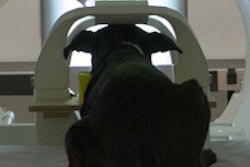Dear MRI Insider,
Canadian researchers have found encouraging evidence that children with multiple sclerosis (MS) who exercise regularly are more likely to have smaller brain lesions.
Using MRI, a group from the Hospital for Sick Children in Toronto discovered that children with MS who regularly participated in strenuous activities, such as running or jogging, had a significantly smaller median T2 lesion size than those who did not strenuously exercise. Get the details in our Insider Exclusive, available to you first as an Insider subscriber.
In other news, researchers from Philadelphia are advocating the use of noncontrast whole-body MRI to screen children who are genetically predisposed to cancer. The group concluded that 1.5- and 3-tesla whole-body MRI produces "excellent images" and achieves sensitivity and negative predictive value of 100% in this pediatric population.
MRI scans also are showing smaller regional brain volumes in people with certain cardiovascular risk factors, which could put them at risk for cognitive issues. A Texas group found that people older than 50 with a history of alcohol consumption and diabetes had smaller total brain volume. In addition, smoking and obesity were linked to less volume in the posterior cingulate cortex, which aids in memory and emotional and social behavior.
In business news, French contrast agent developer Guerbet is shaking up the global contrast media and injector markets with its proposed acquisition of businesses from U.S.-based Mallinckrodt. The $270 million deal will double Guerbet's annual revenues, expand its product line, and instantly make the company a player in the U.S. contrast market.
The U.S. Food and Drug Administration (FDA) is taking another look at gadolinium-based contrast agents in the wake of several recent studies that found gadolinium deposits in the brains of some patients years after they received contrast-enhanced MRI scans. For now, the FDA is asking healthcare professionals to consider limiting their use of these agents to "clinical circumstances in which the additional information provided by the contrast is necessary." No doubt, there will be more developments to come.
Finally, have you have ever wondered what your Fido is thinking when he sees another dog or its owner? Researchers from Emory University used functional MRI to investigate. The study provides the first evidence that dogs may have a region of the brain dedicated to processing facial information, which could explain their sensitivity to human social cues, according to the group.
Be sure to stay in touch with the MRI Community on a daily basis as we cover groundbreaking research from around the world and its contribution to clinical practice.


.fFmgij6Hin.png?auto=compress%2Cformat&fit=crop&h=100&q=70&w=100)





.fFmgij6Hin.png?auto=compress%2Cformat&fit=crop&h=167&q=70&w=250)











